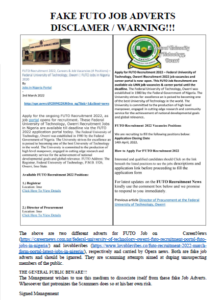Dr Andrew Omame

Biography
Dr Andrew Omame is a native of Kogi State. He hails from Dekina in Dekina LGA of Kogi State, Nigeria. He attended Riga Special Primary School, Kano between 1993 and 1998. He proceeded to Government College, Kano for his secondary education where he obtained his SSCE in 2004. He carried out his university education at Ahmadu Bello University, Zaria where he graduated with a First Class Honours in Mathematics in 2010. His Master’s and PhD degrees were obtained at the Federal University of Technology, Owerri, Nigeria in the year 2014 and 2020, respectively.
- Qualifications
- Honours/Awards
- Affiliations
- Courses Assigned to Teach
- Experience
- Research Interest
- Publications
Academic Qualification
- 1998 – First School Leaving Certificate, Riga Special Primary School, Kano State
- 2004 – West African School Certificate, Government College, Kano
- 2010 – B.Sc. (Hons.), 1st Class Honours, (Mathematics), Ahmadu Bello University, Zaria, Nigeria
- 2014 – M. Sc. Mathematics (Applied Mathematics), Federal University of Technology, Owerri, Nigeria
- 2020 – PhD. Mathematics (Applied Mathematics), Federal University of Technology, Owerri, Nigeria
Honours/Awards
Best Graduating Student Award in the Department of Mathematics, Ahmadu Bello University, Zaria. (2008/2009 Session)
Membership of Professional bodies
- 2013-Date – Member, Nigerian Mathematical Society (NMS)
- 2013- Date – Member, Institute of Operations Research of Nigeria
- 2018- Date – Member, Nigerian Society for Mathematical Biology (NSMB)
Courses Assigned to Teach
- MTH 101
- MTH 201
- MTH 203
- MTH 222
- MTH 421
- MTH 431
Work Experience
- 12th August 2011–Date –
Lecturer, Department of Mathematics, Federal University of Technology, Owerri, Imo State, Nigeria - 2010-2011 –
Department of Mathematics, Federal University of Technology, Owerri, Nigeria. (NYSC)
Research Interest
My research interest is on the qualitative theory of non-linear differential equations and stochastic differential equations. It comprises mainly of Mathematical Biology, which entails designing, and rigorously analyzing robust mathematical models for gaining insights into the transmission and control mechanisms of some emerging and re-emerging human diseases of public health importance. The models, which typically take the form of systems of deterministic non-linear autonomous (or non-autonomous) differential equations as well as stochastic differential equations, are used to design effective strategies for controlling the spread of infectious diseases in a given population.
Publications
- Abiodun, O. Ajibade, Basant K. Jha and Andrew Omame (2011) Entropy Generation Under the effect of suction/injection, Applied Mathematical Modelling, 35: 4630-4646 (Elsevier Journal)
- A. Omame and S. C. Inyama (2014) Stochastic Model and Simulation of the Prevalence of Measles, International Journal of Mathematical Sciences and Engineering Applications (IJMSEA), Vol. 8, No.1, pp311-323
- Onuoha, J. O., Inyama, S. C., Udofia, S. E., and Omame, A. (2015) Mathematical Model of the Transmission Dynamics of Swine Flu with the Vaccination of Non-Newborns, International Journal of Mathematical Science & Engineering Applications (IJMSEA), Vol.9, No. I (March), 259-275
- A. Omame, R. A. Umana and S.C. Inyama (2015) Stochastic model and analysis of the dynamics of Tuberculosis, ResearchJournali’s Journal of Mathematics, Vol. 2, No. 5, pp 2349-2375
- A. Omame, R. A. Umana, N. O. Iheonu and S. C. Inyama (2015) On the existence of a stochastic model of Typhoid fever, Mathematical Theory and Modelling, Vol. 5, No. 8, pp 104-113
- R. A. Umana, A. Omame and S. C. Inyama (2016), Global stability analysis of the impact of media coverage on the control of infectious diseases, Journal of the Association of Mathematical Physics, Vol. 37, pp. 205- 214.
- C. K. Ukobasi, S. C. Nwagwughiagwu, A. Omame and S. C. Inyama (2017), Mathematical model of a SEIQV Epidemic and the use of Homotopy analysis method on its solution, Journal of the Association of Mathematical Physics, Vol. 39, pp. 79- 96.
- Ofomata, A. I. O., Inyama, S. C., Umana, R. A., and Omame, A., (2017) A Stochastic Model of the Dynamics of Stock Price for Forecasting, Journal of Advances in Mathematics and Computer Science, Vol. 25(6): 1-24
- Agwu, I.A., Inyama, S.C., Umana, R.A., Omame, A., Ukanwoke, N., Ofomata., A., (2017), Mathematical Analysis of A Prey-Predator Fishery Model in Three Patch Aquatic Habitat, Journal of Research in Applied Mathematics, Vol. 8 (3) 1-23.
- Omame, A., Umana, R.A., Okuonghae, D., Inyama, S. C. (2018), Mathematical analysis of a two-sex Human Papillomavirus (HPV) model, International Journal of Biomathematics, Vol. 11 (7), DOI:10.1142/
S1793524518500924. (World Scientific Journal). - Nwadibia, A. I., Eze, F., Inyama, S. C., Nse, C. A., Omame, A., Mbachu, H. I. (2018), Mathematical model of the transmission dynamics of Genital Elephantiasis (Lymphatic Filariasis), Mathematical Theory and Modelling, Vol. 8 (4) pp. 71-113
- Agwu, I.A., Inyama, S.C., Umana, R.A., Omame, A., Ukanwoke, N., Ofomata., A., Mbachu, H. I., Udofia, E. S., Uwakwe, J. I., (2018), Determining the Impact of Variation of Harvesting Effort on the Qualitative Behaviour of a Coexistence Steady State Solution and Its Stability in Prey-Predator Fishery Model, Academic Journal of Applied Mathematical Sciences, Vol. 4(10) 119-128.
- Gilbert, F. M., Ihejirika, I., Inyama, S. C., Omame, A., Mbachu, H. I., Uwakwe, J. I., (2019), Deterministic Mathematical Model of Tuberculosis Disease with Treatment and Recovered Groups, International Journal of Mathematics and Statistics Invention, vol. 7 (1), 47-60
- Omame, A., Okuonghae, D., Umana, R. A., Inyama, S. C., (2020), Analysis of a co-infection model for HPV-TB, Applied Mathematical Modelling, 77 (2020) 881–901, https://doi.org/10.1016/j.apm.
2019.08.012

